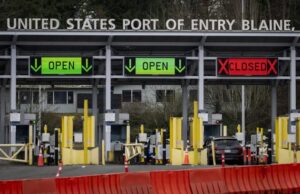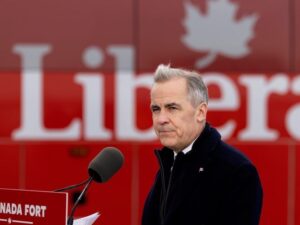
Housing Minister Sean Fraser is expected to unveil details on a Liberal promise to lease federal land to developers to build affordable housing on Sunday just before the full federal cabinet kicks off a three-day retreat in Halifax.
The annual end-of-summer cabinet session comes three weeks before Parliament returns for the fall sitting and is likely the last summer retreat for this cabinet before the next election.
It may be the last real chance this government has to reset itself with voters before asking them for another mandate.
A year ago, a cabinet retreat in Charlottetown had a heavy focus on housing as rapid immigration and lacklustre housing starts drove availability down and prices up .
But the Liberals left that retreat without anything concrete to announce, and their poll numbers continued to suffer as they failed to convince Canadians they have the recipe to fix a problem that has become critical under their watch.
This time around they intend to put plenty in the window for Canadians starting Sunday afternoon when Fraser and Public Services Minister Jean-Yves Duclos will publicize efforts to turn underused or vacant federal land and properties into affordable housing.
Former Liberal chief of staff Marci Surkes, now the chief strategy officer at government relations firm Compass Rose, said housing will be central to this retreat and the Liberal agenda going forward.
“Frankly the government has certainly made significant policy moves and investments since last year and some of them are beginning to bear fruit, but the reality is that the focus on supply needs to remain in place,” she said. “There is no real relief yet.”
The afternoon announcement comes four months after Fraser and Prime Minister Justin Trudeau published their updated housing plan, aiming to build nearly four million new homes in less than seven years.
It’s estimated between 3.1 million and 3.5 million new units are needed by 2031 to solve the housing crisis that has left Canada with some of the least affordable housing among developed countries.
The Canada Mortgage and Housing Company warned earlier this year that the housing affordability crunch is likely to last into 2026, though housing starts may begin to improve in the coming months thanks to falling interest rates.
Housing demand spiked in Canada in the first two years of the COVID-19 pandemic. Between March 2020 and March 2022, the average price of a home in Canada grew more than 50 per cent to $835,000. That has since fallen, as high interest rates drove up borrowing costs and fewer people were in the market to buy a home.
Average rents are up nearly 25 per cent in the last five years.
The Organization for Economic Co-operation and Development reports the home price to income ratio in Canada has fallen since it peaked in early 2022, but overall the cost of a home has increased 40 per cent more than Canadian incomes have since 2015.
The government’s overall plan includes new protections for tenants, loans to build more apartments and a spate of programs to massively expand the number of affordable units available. Among those is the building homes on public lands project, which seeks to identify and lease underused or vacant federal properties to developers to build affordable homes.
With capital land costs sometimes up to one-quarter of the cost of a new home, the leasing program helps lower those initial costs for developers and also keeps the land in public possession to help guarantee the homes built on them stay affordable.
The April budget identified the first five land parcels for lease under the program. Four of them are on former military bases in Calgary, Edmonton, Toronto and Ottawa while the fifth is the site of a former National Film Board building in Montreal.
This retreat is also expected to see the government discuss immigration and temporary foreign workers, industrial strategies including for the electric vehicle market, child care and Canada-U.S. relations.
The meetings start on Sunday evening with a working dinner, with two full days of discussions to follow. Monday will see cabinet hear from experts and advisers on housing, immigration and middle class economics. They will include Kevin Whitzman, CEO of the Canadian Home Builders’ Association, Sen. Hassan Yssuff, the former president of the Canadian Labour Congress, and Maya Roy, the former CEO of the YWCA Canada.
Tuesday’s discussions will shift to Canada-U.S. relations, with the upcoming presidential election holding major significance for Canada which relies heavily on U.S. trade for its economic stability. Canada’s U.S. Ambassador Kirsten Hillman will address the cabinet Tuesday, as will former ambassadors Frank McKenna and David MacNaughton.






